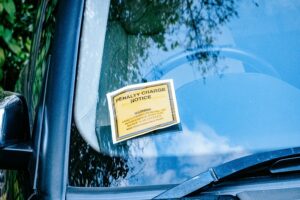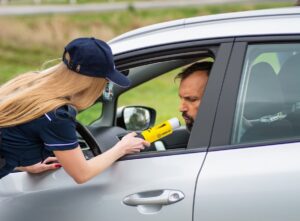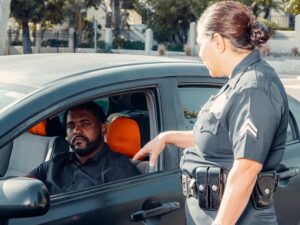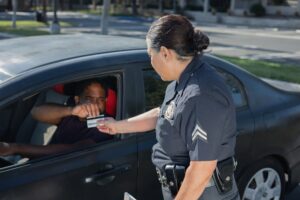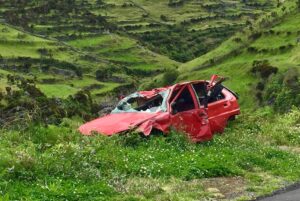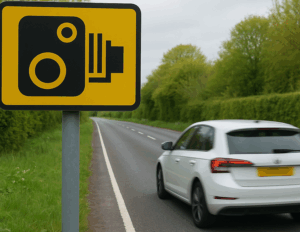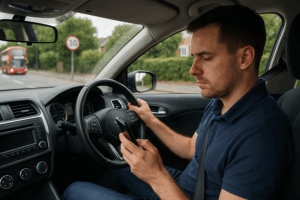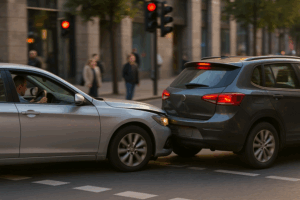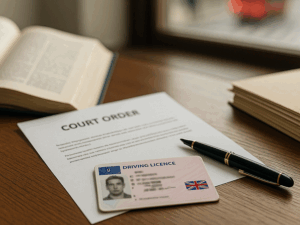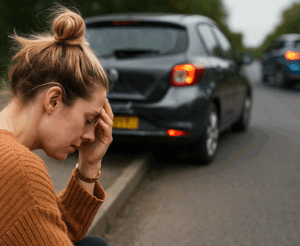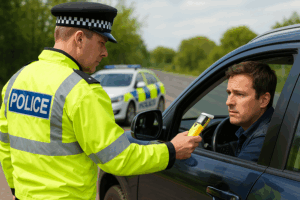Were you injured by a dangerous driver? Your legal guide

You watched someone nearly kill an innocent person; and they just drove off. Now you’re wondering: “Can I actually do something about this?” Yes, you can stop them permanently. Dangerous driving reports lead to prison sentences up to 14 years, but only when filed correctly. Most people mess this up completely, letting dangerous drivers continue terrorising roads. The police need specific evidence within strict timeframes, and one missed detail ruins everything. This criminal law process isn’t forgiving, but master it and you’ll get results. Contact a driving and motoring offence specialist today.
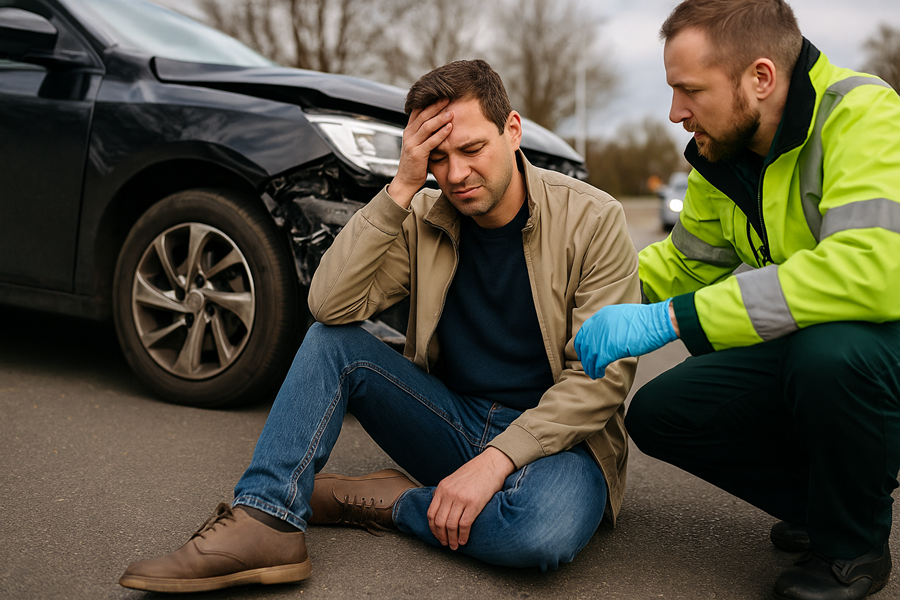
KEY TAKEAWAY: Can witnesses report dangerous driving and get the driver imprisoned?
Discover the insider secrets that turn your dangerous driving report into guaranteed prosecutions and maximum compensation.
Dangerous driving vs Careless driving: Essential legal differences
You think all bad driving is the same? The classification determines whether your report triggers a major criminal investigation or gets filed as a minor traffic violation.
Is dangerous driving a criminal offence? Absolutely, it’s one of the most serious motoring crimes in UK law, while careless driving is often just a minor penalty.
Dangerous driving occurs when a driver’s behaviour falls “far below” acceptable standards and creates obvious risk of injury:
- Road rage incidents: Using vehicle as weapon or deliberately ramming other cars.
- Ignoring traffic signals: Running red lights at speed or driving wrong way down motorways.
- Impaired driving: Operating vehicles while significantly affected by drugs, alcohol, or fatigue.
- Street racing or excessive speeding: Driving at speeds that make control impossible in traffic conditions.
- Aggressive overtaking: Forcing into oncoming traffic or cutting across multiple lanes dangerously.
Careless driving involves momentary lapses like mobile phone use, eating while driving, or minor tailgating incidents. Dangerous driving first offence cases carry mandatory 12-month driving bans minimum, while careless driving often results in just 3-9 penalty points.
The classification impacts your report dangerous driving process significantly. Dangerous driving reports require immediate police response, detailed witness statements, and often trigger specialist traffic investigation units, while careless driving reports can be filed online with basic details.
Report dangerous driving: Step-by-step process and expert tips
Time is your enemy when reporting dangerous drivers. Every minute you delay gives them more opportunities to hurt others while evidence disappears forever.
Can you report dangerous driving effectively? Yes, but only if you follow the exact sequence that police investigators need to build prosecutable cases.
Follow this precise reporting sequence to maximise prosecution chances:
- Immediate safety first: Move to safe location, call 999 if injuries occurred or road blocked, otherwise use 101 for non-emergency reports.
- Document everything instantly: Record exact time, location, weather conditions, and vehicle details including registration, make, model, and colour.
- Identify witnesses quickly: Get names and contact details before people leave the scene; witnesses vanish within minutes.
- Report online backup: Submit additional details through your local police force’s online portal within 24 hours for permanent record.
- Follow up aggressively: Contact investigating officer after 48 hours if no response, dangerous drivers exploit police delays.
- Report to DVLA if medical concerns: Notify DVLA if driver appeared impaired by medical conditions, age, or substance abuse.
Report dangerous driving incidents require different evidence thresholds than minor traffic violations. Police need proof the behaviour was “far below” normal driving standards, not just momentary inattention.
Death by dangerous driving sentence: What prison time really means
That driver who killed someone isn’t just getting a fine and points. They’re facing real prison time. Death by dangerous driving minimum sentence UK guidelines ensure serious consequences, but actual sentences depend on aggravating factors that can multiply prison time dramatically.
Death by dangerous driving sentence ranges vary based on culpability levels and harm caused:
- Lower culpability cases: 2 to 5 years’ imprisonment for a momentary lapse of dangerous driving resulting in death.
- Higher culpability offences: 7 to 14 years’ custody for deliberate risk-taking such as racing, extreme speeding, or driving under the influence of alcohol or drugs.
- Multiple deaths or injuries: Sentences can now exceed 14 years and reach life imprisonment when several deaths or serious injuries are caused.
- Aggravating factors: Using mobile phones, carrying vulnerable passengers (children, elderly), ignoring passenger warnings, repeat offences, or dangerous driving history can increase the sentence.
- Mandatory driving bans: Minimum 2-year disqualification applies, often extended to 5–10 years in serious cases, with an extended re-test required before regaining a licence.
Causing serious injury by dangerous driving carries maximum 5 years imprisonment even when victims survive, ensuring dangerous drivers face consequences regardless of outcome.
Causing death by dangerous driving convictions result in criminal records that destroy employment prospects, prevent foreign travel, and require disclosure for most job applications. Prison sentences are served in category B or C facilities, not open prisons.
Even dangerous driving causing minor injuries or property damage only carries 6 months custody maximum, but defendants still face criminal records, driving bans up to 2 years, and unlimited fines that courts increasingly use to reflect financial harm caused.
Insider tips: Evidence that guarantees successful prosecutions
Police dismiss most dangerous driving reports because victims provide useless evidence that wouldn’t convince a traffic warden, let alone a judge. Successful prosecutions depend on evidence that proves the driver’s behaviour fell “far below” acceptable standards and created obvious danger to others.
Collect this prosecution-grade evidence that courts cannot ignore:
- Video evidence with context: Dashcam or mobile footage showing 30 seconds before incident, not just the collision moment; context proves dangerous pattern.
- Independent witness statements: Contact details for at least 2 witnesses who saw the dangerous behaviour, not just people who heard the crash.
- Technical evidence: Skid marks, vehicle damage patterns, and debris fields that accident investigators use to calculate speeds and reconstruct events.
- Driver behaviour documentation: Signs of impairment, aggressive gestures, or admissions at scene.
- Environmental factors: Road conditions, weather, lighting, and traffic density that demonstrate why the driving was particularly dangerous.
- Medical evidence: Prompt medical attention creates timestamped injury records that link directly to the incident.
Victim’s guide: Maximising your dangerous driving compensation
Dangerous driving victims receive substantially higher compensation than careless driving cases because courts recognise the deliberate nature of the offence and its devastating impact.
Calculate your true compensation entitlement across these essential categories:
- Pain and suffering awards: Minor whiplash under the Whiplash Tariff range from £240–£4,345, while the most serious spinal injuries can exceed £300,000 using the Judicial College Guidelines.
- Lost earnings calculations: Full salary replacement during recovery, plus future income protection for permanent disabilities affecting work capacity.
- Medical treatment costs: Private physiotherapy, counselling for trauma, adaptive equipment, and ongoing care needs throughout your lifetime.
- Property damage recovery: Vehicle replacement at pre-accident value, not depreciated insurance estimates, plus personal items destroyed in collision.
- Care and assistance: Compensation for family members providing help with daily tasks, cleaning, shopping, and personal care during recovery.
- Travel and accommodation: Medical appointment transport, hospital parking fees, and family accommodation during treatment.
Psychological trauma from dangerous driving incidents may lead to compensation under the Judicial College Guidelines, ranging from £1,880–£7,150 for less severe psychiatric injury, up to £73,050–£141,240 for the most serious cases of PTSD or psychiatric damage causing long-term disability and major life disruption.
Do I need a dangerous driving solicitor?
Dangerous driving cases involve complex criminal law intersections with civil compensation that lay persons cannot navigate effectively.
You need specialist legal representation for these critical situations:
- Reporting as witness or victim: Solicitors ensure police take your report seriously, prevent evidence destruction, and push for proper criminal charges rather than minor traffic citations.
- Criminal case support: Legal representation protects your interests during police interviews, court proceedings, and ensures victim impact statements maximise sentencing.
- Compensation claims: Specialist solicitors typically secure settlements 5-10 times higher than self-represented victims through expert medical evidence and precedent knowledge.
- Civil litigation: When insurers refuse fair settlement, court proceedings require specialist advocates who understand driving and motoring offence prosecution evidence.
- Multiple defendant cases: Complex liability disputes involving several drivers or commercial vehicles need specialist negotiation and litigation skills.
FAQs
Can I report dangerous driving anonymously?
Yes, but anonymous reports carry less weight. Providing contact details strengthens prosecution chances significantly.
What happens if the dangerous driver has no insurance?
You can claim through the Motor Insurers’ Bureau (MIB). Claims take longer but victims receive full compensation.
How long do I have to report dangerous driving to police?
No legal time limit, but report within 24 hours as CCTV footage often deletes after 7-30 days.
Dangerous driving destroys lives, but proper reporting and legal action ensure justice. Armed with insider knowledge of evidence requirements, sentencing realities, and compensation entitlements, you can hold reckless drivers accountable while securing maximum financial recovery.
Stop dangerous drivers!
Qredible’s specialist road traffic solicitors know exactly how to maximise your compensation and ensure proper prosecutions.
KEY TAKEAWAYS:
- Dangerous driving is a serious criminal offence carrying up to life imprisonment when it causes death, 5 years if it causes serious injury, and 2 years otherwise, unlike careless driving which generally attracts lesser penalties.
- Victims and witnesses must report dangerous driving through 999 or 101, gather specific evidence including witness details and video footage, and can report online for permanent records within 24 hours.
- Specialist solicitors typically secure compensation settlements 5-10 times higher than self-represented claims through expert knowledge of criminal law intersections and driving and motoring offence procedures.
Articles Sources
Do you need a solicitor?
Find a solicitor on Qredible in just a few easy steps













